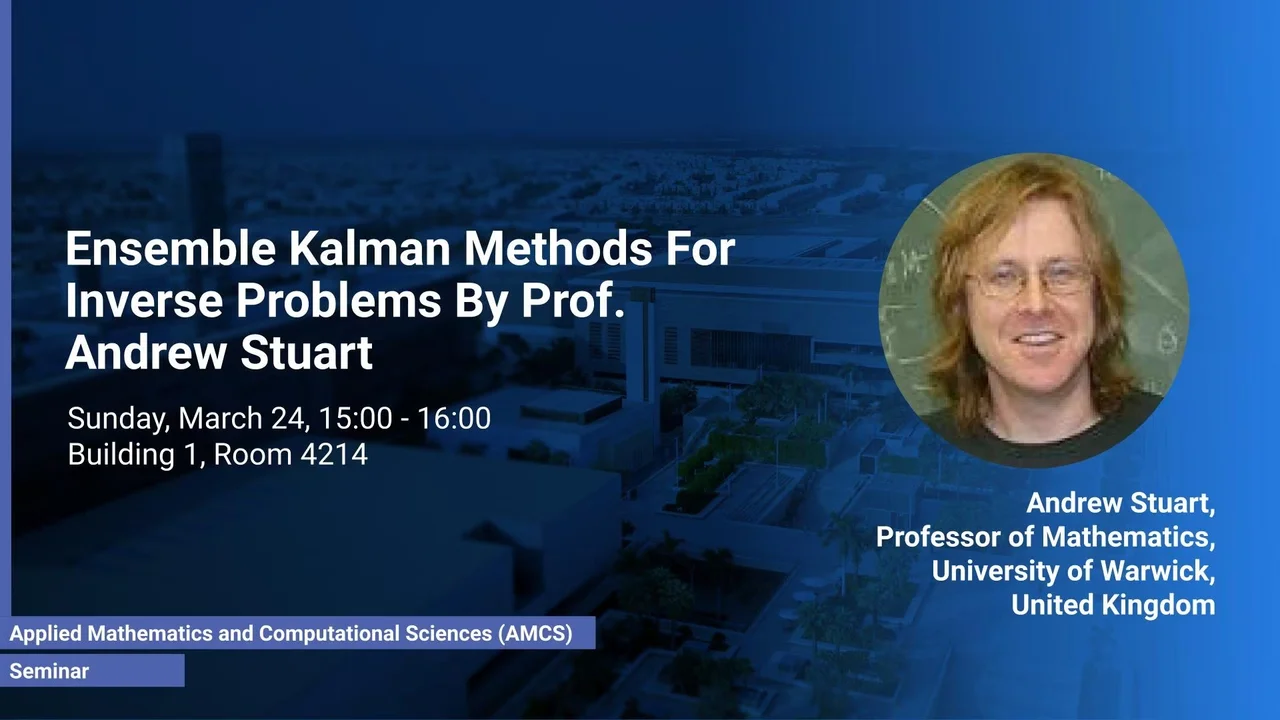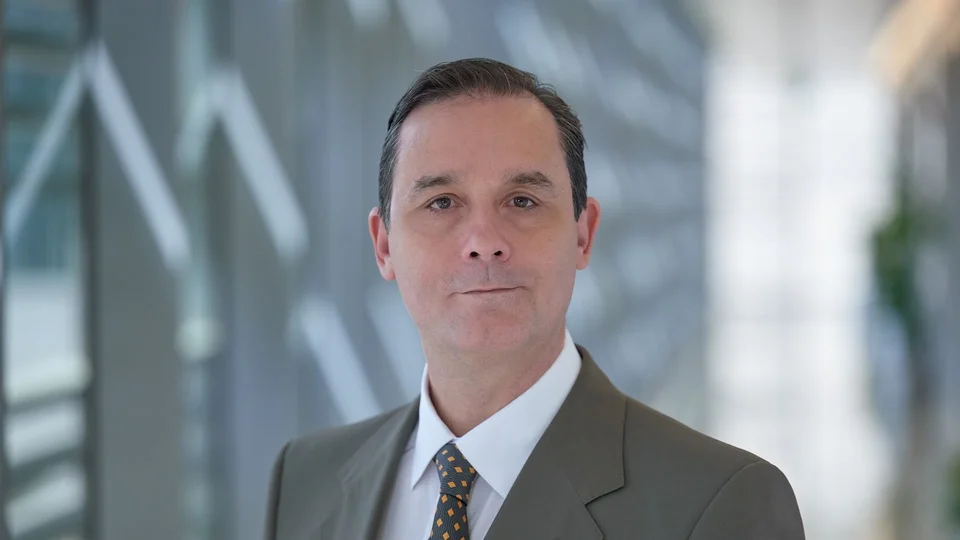
Ensemble Kalman Methods For Inverse Problems By Prof. Andrew Stuart (Warwick University, United Kingdom)
Many problems in the physical sciences require the determination of an unknown field from a finite set of indirect measurements. Examples include oceanography, oil recovery, water resource management and weather forecasting. This may be formulated as a least squares problem to match the model output to the data. I will demonstrate that ideas from the Ensemble Kalman Filter can be adapted to solve such problems: by running multiple interacting copies of the model, and exposing their output to the (suitably randomized) data, a derivative-free minimization tool is constructed.
Overview
Abstract
Many problems in the physical sciences require the determination of an unknown field from a finite set of indirect measurements. Examples include oceanography, oil recovery, water resource management and weather forecasting. This may be formulated as a least squares problem to match the model output to the data. I will demonstrate that ideas from the Ensemble Kalman Filter can be adapted to solve such problems: by running multiple interacting copies of the model, and exposing their output to the (suitably randomized) data, a derivative-free minimization tool is constructed. A key theoretical result is described and this is used to motivate a series of experiments which demonstrate the efficacy of the algorithm.
Brief Biography
Andrew Stuart received his PhD from Oxford University in 1987. Since that time he has held permanent academic positions at Bath University (Mathematics), Stanford University (Engineering) and Warwick University, where he is currently a Professor of Mathematics. He works in computational applied mathematics, especially in the areas of dynamical systems and stochastic analysis. He has received a number of honours and prizes for his work, including a Leslie Fox Prize (IMA, UK), Monroe Martin Prize (IPST Maryland), Crawford, Dahlquist and Wilkinson Prizes (SIAM) and a Whitehead Prize (LMS); he is also a SIAM Inaugural Fellow, and was an invited lecturer at ICIAM 2007. His current research interests are focused on data assimilation and inverse problems.
